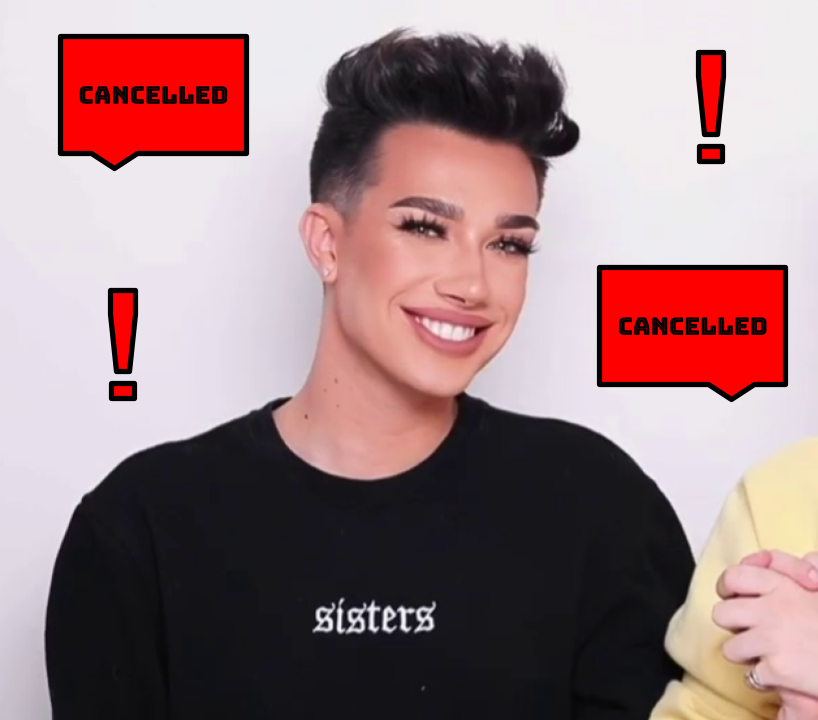We’ve seen it year after year. A celebrity’s scandal is revealed to a horrified public. The public — disgusted and united against the popular celebrity’s actions — vows to unfollow, block, spread information about and disregard their brand entirely. What the celebrity has done is inexcusable, and thus cancel culture takes its full effect.
The general public will ignore the famous individual, bonding over the quick drop in follower count. The cancellation process will hit a peak with more and more scandalous behavior from years ago piled onto the mess. Every bad thing this person has done comes to light, dug from the trenches of the internet archive. However, people will soon forget and move to another celebrity. Someone else will do something equally terrible, shifting the spotlight. That previously cancelled celebrity will remain quiet for a while before posting very neutral content until their entire scandal is completely forgotten.
Maybe it’s not that we love to cancel — maybe we just love to watch someone fall and rise again because it reminds us of the power we hold in numbers.
Cancel culture became popular to keep inherently bad people out of the spotlight, almost as an extra way to keep both society and powerful people in check. The morally correct thing to do is to give a platform to people who deserve it — the mothers of sick children, the artistic and talented individuals, the people voluntarily risking their lives for the greater good. But the public gets bored and demands entertainment. Beauty videos, comedy sketches, gaming content and many other types of videos became popularized on YouTube and other social media platforms, giving birth to influencers and minor celebrities.
One of the most extreme cases of cancel culture centers around James Charles and Tati Westbrook, two popular beauty influencers around the late 2010s. Charles currently sits with 24 million YouTube subscribers, 20 million Instagram followers and 40 million TikTok followers. Would you believe me if I told you he’s been cancelled multiple times?
His first mainstream scandal was due to a jaw-dropping video that Westbrook posted. In this video, she outlined why James was a terrible person, bringing attention to not only his brand choices but also his personality and his betrayal of her. Westbrook was a mentor to Charles at the beginning of his career, but he endorsed a rival brand of hers, which ignited this public shaming. The betrayal was just the tip of the iceberg — more and more allegations, both confirmed and rumored, came to light. James lost millions of followers as the public exiled him. So, how did he crawl his way back from cancellation into fame once more?
The truth is, cancel culture draws a hyperfixation on these celebrities. While the public may momentarily cast them to the shadows, they will also soon forget. If you post enough trending content, write as many apologies as necessary and have a really good PR team, you will become a celebrity once again.
This cycle happened with more than just Charles. Tana Mongeau, Jeffree Star, Lizzo, Morgan Wallen — the list goes on, and it feels like a new celebrity is cancelled every day at this point. It becomes hard to differentiate between someone who has negatively impacted society — whether that be culturally appropriating, sending a racist tweet or committing a serious crime — and someone who has made a minor mistake. A system set in place to keep checks and balances for people in power has spiraled into a competition to performatively cancel someone. It seems as though cancel culture is more for the public to pat themselves on the back and say, “I did a great job,” instead of actually deplatforming problematic people in authority.
An interesting aspect of cancellation is a celebrity’s ability to take this time to rebrand themselves. One of my personal favorite examples of this is Trisha Paytas — an ex-fame-obsessed struggling pop star turned family woman and mother. Her start led her to do anything possible to get famous. With attention as her main goal, she guest-starred in music videos, auditioned for talent shows and even made cameos in popular television shows. Her desperation to be famous prompted her to make many culturally inappropriate videos and say many problematic and controversial statements.
In recent years, Paytas has married and started a family, fulfilling what she has said her main purpose in life was — to be a mother. Her content and branding have completely changed as well. Her previously culturally inappropriate videos have become family vlogs, and her desperation to be famous has weakened. The internet has deemed Trisha as “uncancellable.” As many times as people have raised red flags to her content, she has rebranded. People often return to those cancelled as if time makes up for their inappropriate, illegal or scandalous behavior.
Rather than highlighting why someone should not have as much power as they do in modern culture, cancel culture draws a fixated obsession. Other influencers post videos updating us on the “drama” of the situation, capitalizing off of their loss. The internet makes it a game to dig into the celebrity’s past, finding childhood photos, old tweets and anything remotely negative to worsen the situation. The public loves a mob mentality as much as they love being right.
If we have learned anything, the general public loves a scandal more than they care about the morals of people in power.
Faith Richardson likes to write about student life, the arts and the media. Email her at [email protected].

